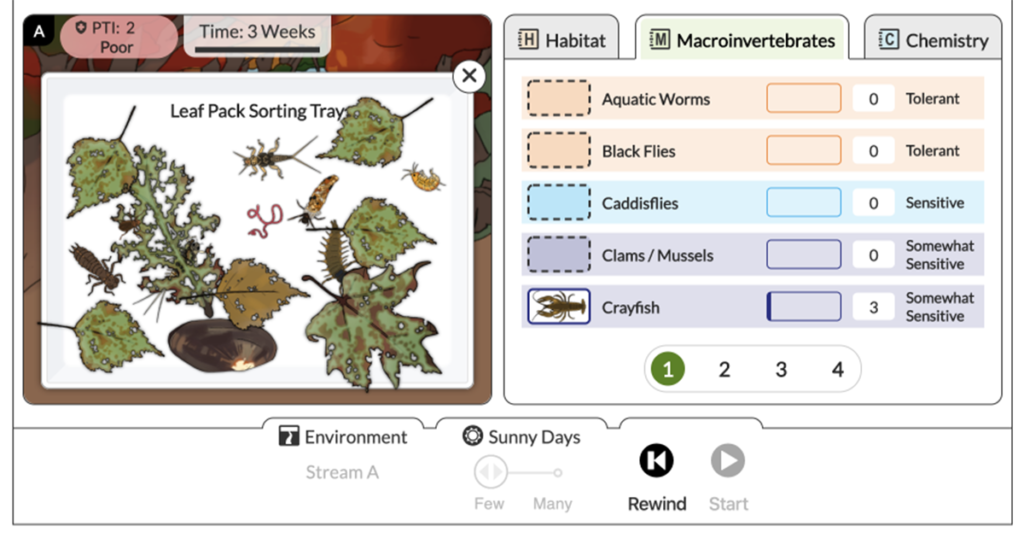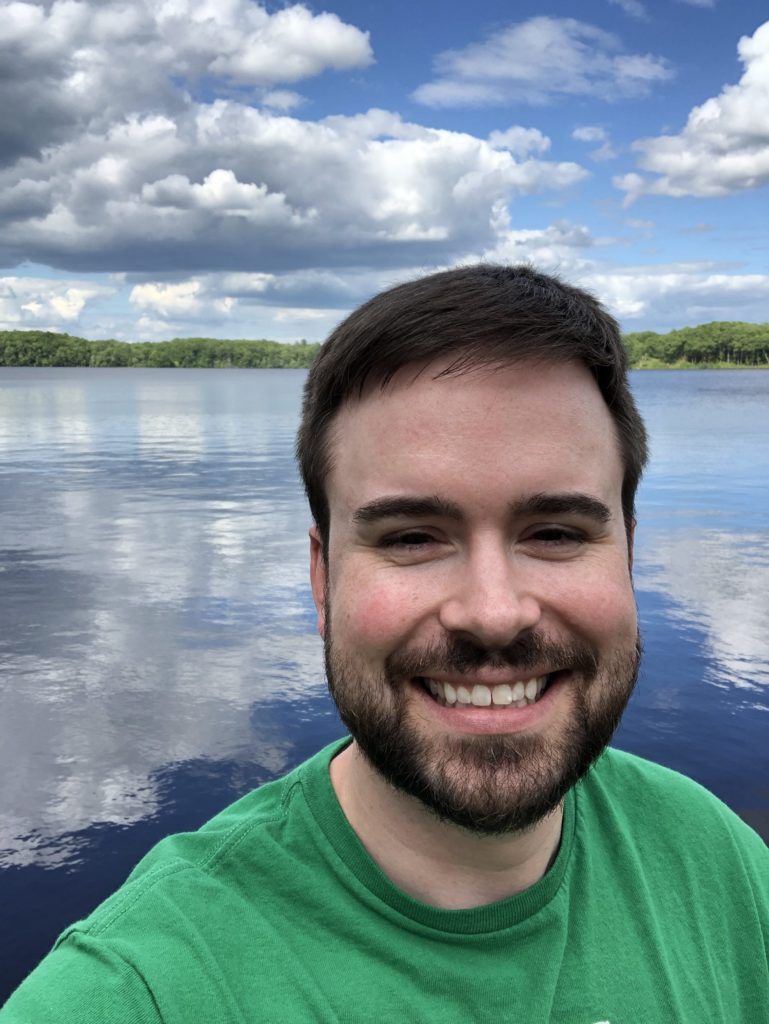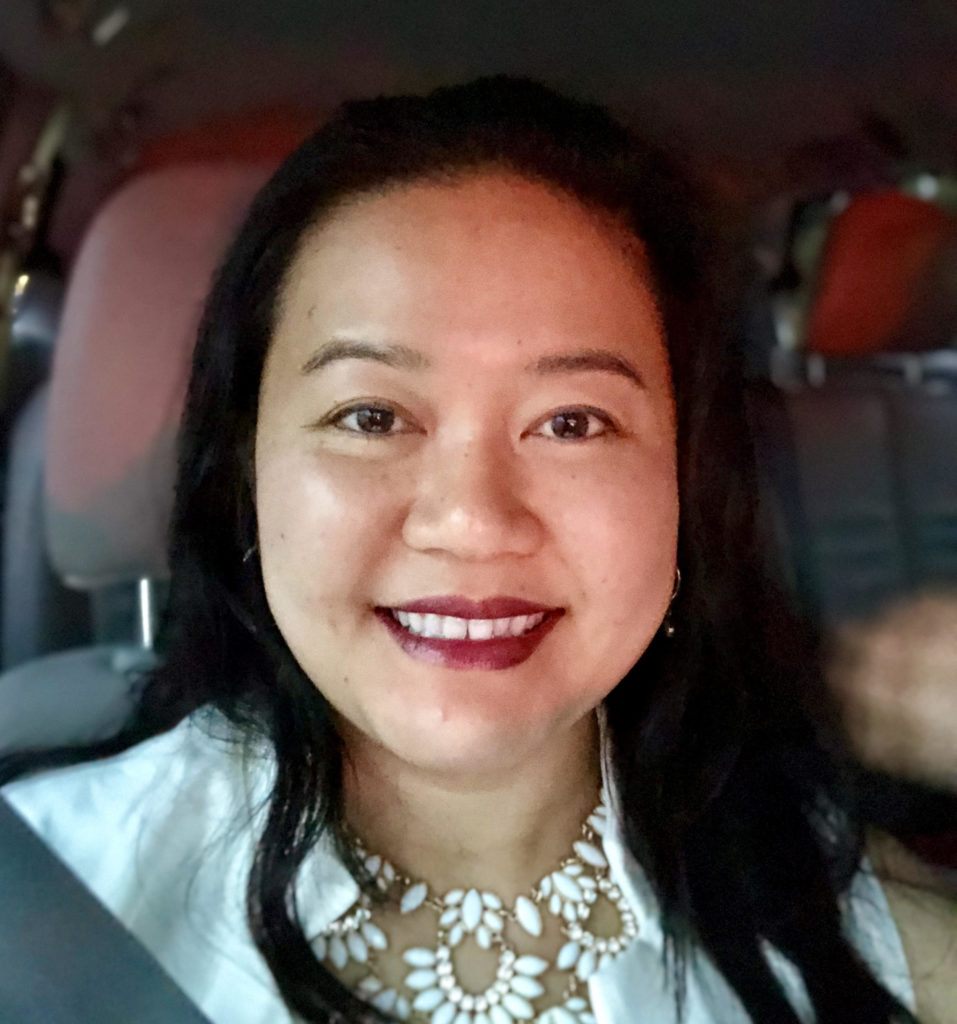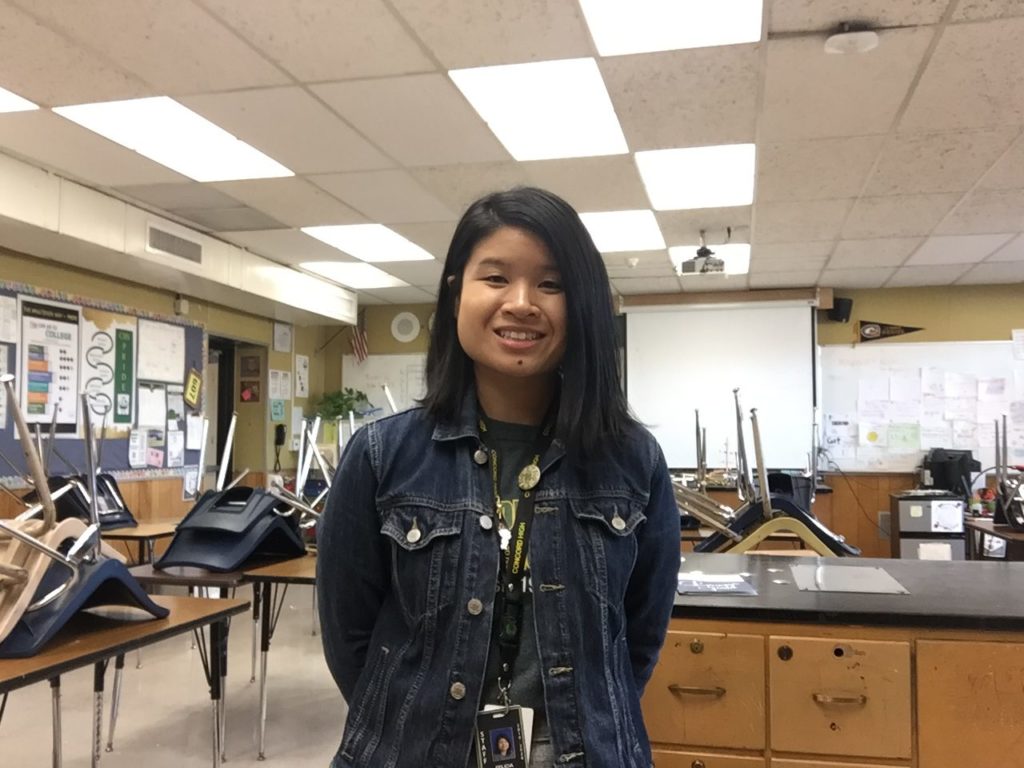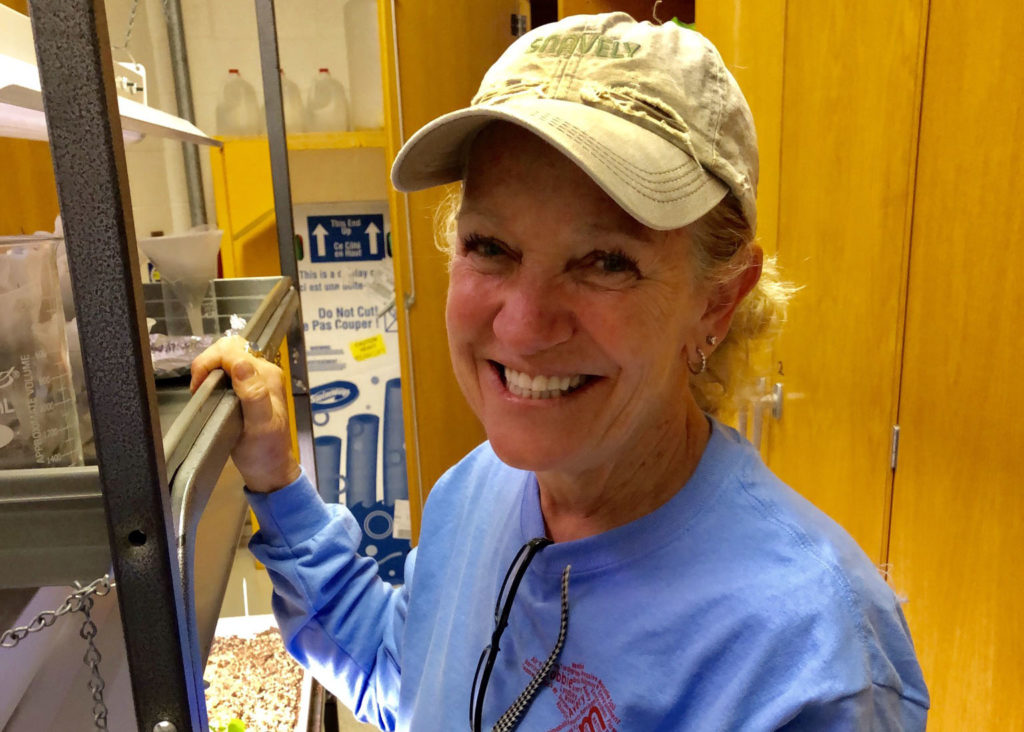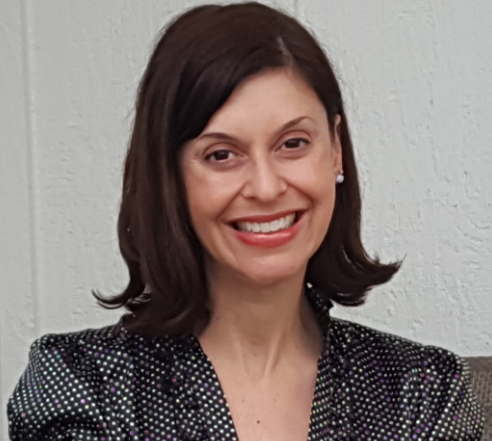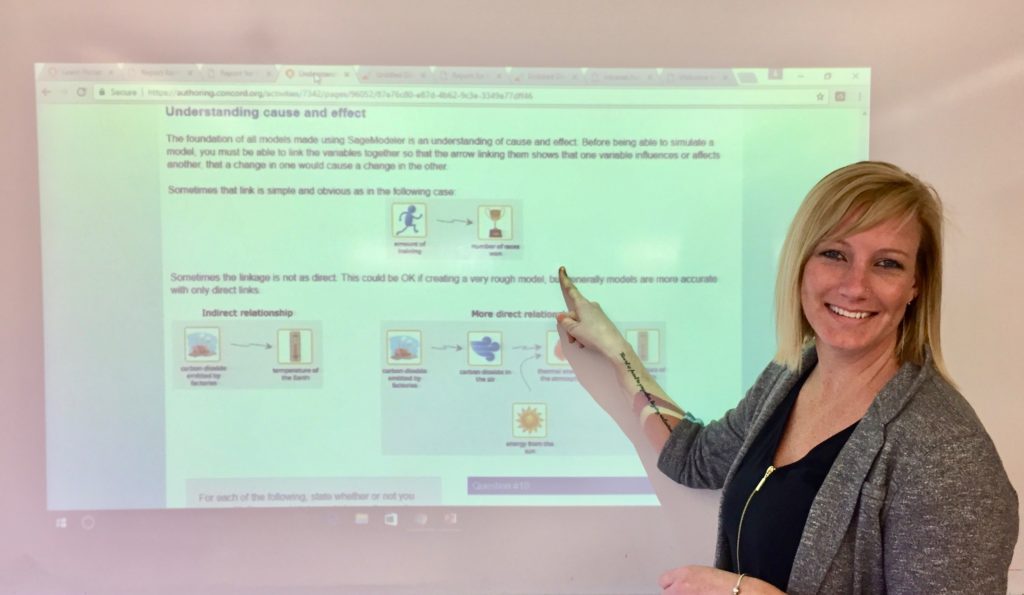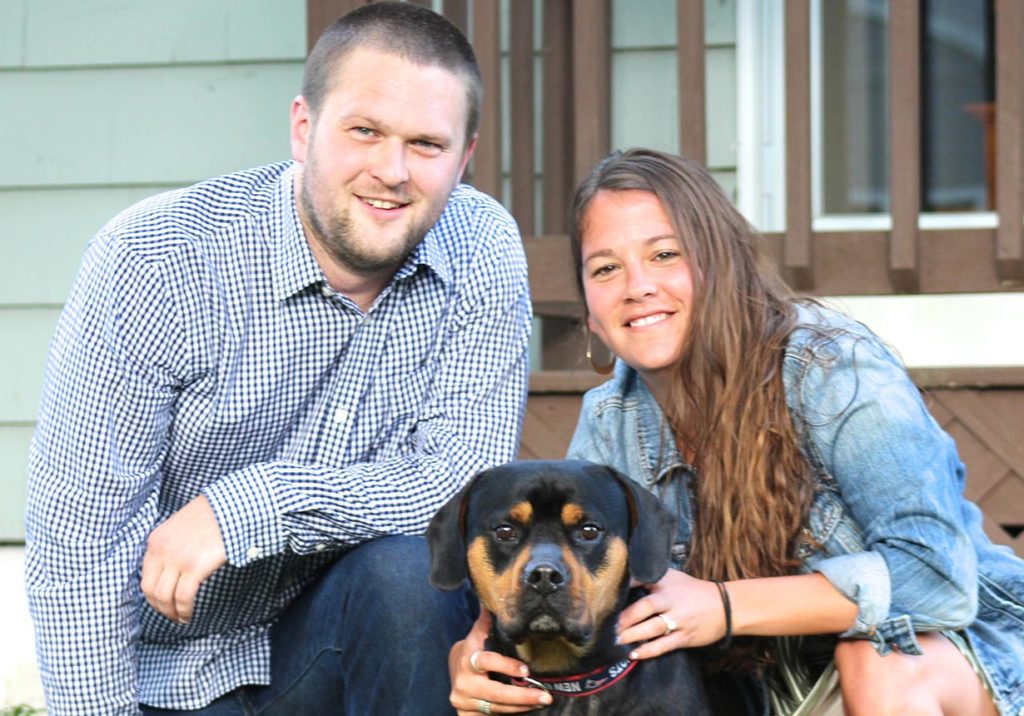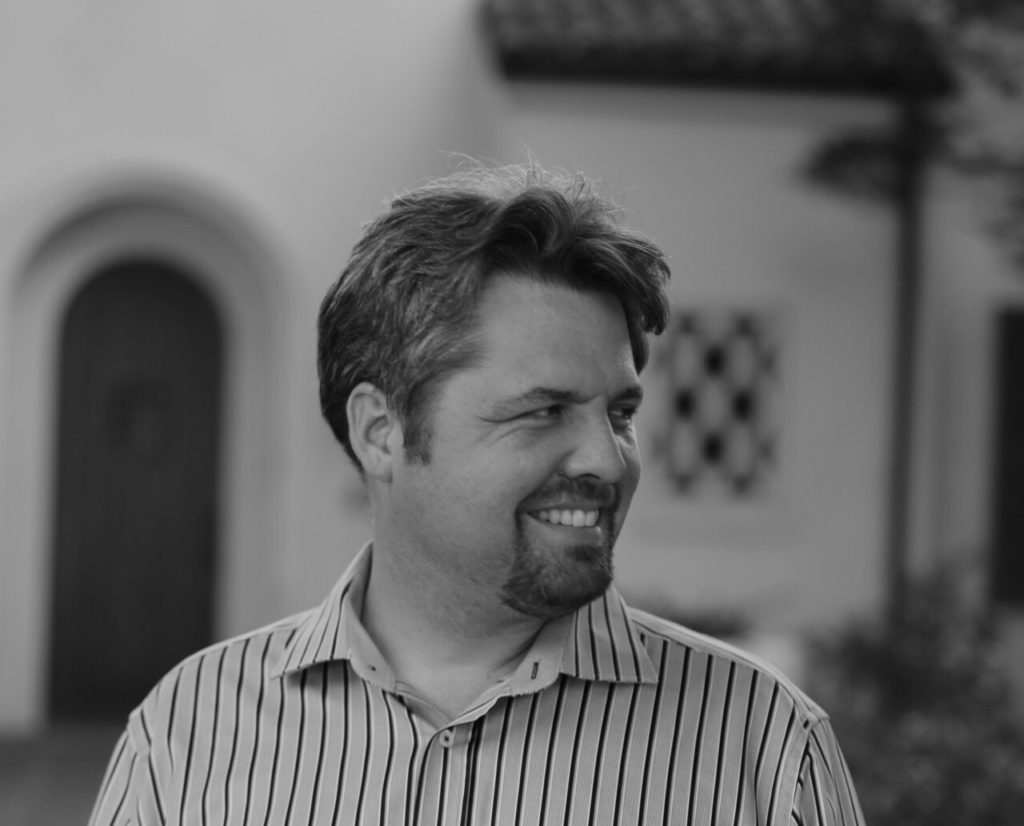Category: Teacher Ambassadors
The Concord Consortium’s Teacher Ambassador program commemorates our 25th anniversary by recognizing 25 outstanding teachers who have included our digital inquiry resources into their STEM classrooms. We congratulate them on their innovation and creativity.
- Alison Pflanz
- Andrew Njaa
- Barbara Algarin
- Cassandra Muse
- Christine Fernandes
- Craig Beaulieu
- David Oyler
- Ed Crandall
In the past year, Karla Orosco has taught 7th grade science in person, remotely online, remotely and in person simultaneously, from home as well as from her classroom, to students locally and as far away as Italy. Needless to say, she has had logistical challenges, but mostly, she missed her students. Orosco teaches at the […]
Craig Beaulieu has set a goal for this school year: to wear a different tie dye shirt every day. He’s on target so far. “As teachers, I feel that we teach in Neverland,” he says. “It is the adults that are getting older while all the children remain in the same age range.” He believes teaching helps him stay young at heart and live a fulfilled life. Wearing colorful shirts to school may help, too.
“Only by making sense of what they are seeing and doing can students truly appreciate what science is and what scientists need to do to better understand our world,” says Ed Crandall.
He brings this sense of adventure to his life and his teaching. When backpacking in Alaska and hiking in Zion National Park, the extreme beauty nearly crumpled him. Ed was equally moved when he first saw Maxwell’s equations in a physics lecture. He now laughs about “being brought to tears by math.”
Khamphet (Phet) Pease had been teaching STEAM elective classes at Wilson Middle School for five years when she was named one of the five San Diego County Teachers of the Year in 2015. She was invited to throw the ceremonial first pitch at a San Diego Padres game. She continues to teach at Wilson—and to be recognized. This year she won an NCWIT Aspirations in Computing Educator Award, which celebrates formal and informal educators who encourage young women’s interest and participation in technology pursuits.
Felicia Yu would love to take a road trip up the West Coast with stops in Ashland (for the Oregon Shakespeare Festival), Portland, Seattle, and Vancouver. It’s no surprise that part of her dream vacation also includes “hitting up every major botanical garden along the way,” since she holds a master’s degree in horticulture.
“My dad said I was born to teach,” says Kerrie Snavely.
She uses those instinctive skills to teach 10-12th grade traditional biology and supported biology and freshwater biology at Conestoga Valley Senior High School in Pennsylvania. Since 2015, she has been instrumental in developing Concord Consortium’s popular Model My Watershed program, which her students use to explore biotic and abiotic factors within their local watershed. “Students can actually see how their everyday life affects the watershed,” she explains.
It’s not every day that a 9th grade student becomes enamored with pond scum. “The first time I saw a sample of pond water under a microscope,” says Rebecca Brewer, “I was hooked.” Until that time, she had never considered the microscopic world, but once she saw the “alien-like” critters swimming in that sample, she wanted to learn more. “That eventually transcended into wanting to share that thrill of discovery with others.”
How can something that can’t be seen crush a 67,000 pound oil tanker made of half-inch steel? That was the driving question Hudson High School teacher Erin Cothran asked her 10th grade chemistry class. “I can’t take full credit for the driving question based on the tanker phenomenon,” she laughs.
When Cassandra Muse was young, she struggled in school, but in fifth grade an inspiring teacher helped turn that around. “Mrs. Jutras was different than any teacher,” she recalls fondly. “She went out of her way to get to know her students on a personal basis, while creating positive relationships with each one. She spent her prep time building their self esteem in their academic abilities, and always found an engaging way to teach all types of learners.”
Ken Hawthorn started his career as a prototyping engineer working with early stage companies to develop proof-of-concept technologies: localized surface plasmon resonance (LSPR) in biotech to long-range electric motorcycles. After volunteering in an afterschool program to help academically and socially at-risk students, he discovered that engineering has a lot in common with teaching.
